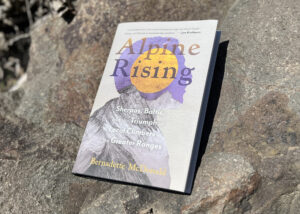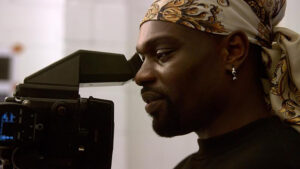“Throwing yourself at an audacious goal, knowing full well that you may not achieve it, is deeply satisfying.” Spoiler alert: These words are spoken two weeks after said audacious goal was not completed.
Some would call that failing. But this is clearly not a failed mission. The tone of this paddler’s words in the above statement sounds genuinely at peace. You see, satisfaction has to be the driver.
It has to be the driver because no one cares about the mission. In a world where TV screens are chewed up with tales of leaders abusing power and teenagers leading a climate revolution, no one’s giving air time to eight paddlers courageously doing what no human has yet accomplished.
Blasting down the Grand Canyon faster than 34 hours is precisely what the team didn’t achieve. Thirty-four hours is the current record, held by a solo kayaker. Read that again; a solo kayaker. A single human paddled for 34 hours in an unpredictable and untamed entity: water. And whitewater at that. No, his arms didn’t fall off.

Ben Orkin holds the current speed record for paddling down the Grand Canyon. Photo courtesy of National Geographic
This mission is set on the Colorado River, which runs for 232km through one of the world’s most spectacular natural spaces, the Grand Canyon. This is the stage for Seth Kurt Mason, Matt Norfleet, Kurt Kinsel, Ian Anderson, Rob Prechtl, Marty Borgess and Jeremiah Williams, captained by John Mark Seelig. Their mission of beating 34 hours includes paddling at night. If a cloud obscures the moon –- the team’s navigating light -– precisely when whitewater is moving in an unexpected way, the outcome could be catastrophic.
On paper, this is a highly competent team. Some of the guys are on the U.S. Men’s Rafting Team, others are veterans to the sport. Their advisor, Brian Dierker, professes to have spent no fewer than 250 days on the water annually for the past couple of decades. It’s fair to say that if anyone were to attempt such a record, this nine-man team has the best chance.
But despite eight months of preparation, their expertise doesn’t match the mission. Therein lies the problem.
First, the team consists of paddlers, not oarsmen. What’s the difference, you ask? Well, paddles are not as fast as oars. An oar’s longer shaft gives more leverage — more power, more speed. If the goal is to be fast, oars have to be used. But rowing is not where their muscles or their techniques shine best.
They’re also not boat builders. Yet in order to give themselves the best chance at the elusive record, they need to build a boat that holds eight people, goes fast and can manoeuvre in whitewater.

The custom-built boat on the Grand Canyon. Photo: Forest Woodward
Let’s not forget, these men are paddlers. Not boat builders. Boat builders probably wouldn’t attempt a world record using a boat that was patched together using parts of many different boats. Pretty sure if you asked Team America if they’d race with bits of boats, they’d decline.
After 21 hours of rowing, the team suffers a puncture to one pontoon. The boat takes stress. Parts inevitably break. With a three-hour repair and 160km left to row, the speed record becomes untouchable. I repeat: they are not boat builders. And not boat repairmen, either.
What they are, though, is deeply satisfied, even though they failed to best the speed record. Satisfied to teach their kids that you can learn a “set of tools to deal with adversity”. Satisfied to “challenge the human spirit”. Satisfied to teach their kids “that Dad never quit on anything.”

Satisfaction isn’t always about achieving the goal.
The paddlers’ official time was 39 hours and 34 minutes. But that doesn’t matter. No one cares that they haven’t been able to out-paddle a solo kayaker. No one cares that they aren’t great at boat building, or repairing, for that matter. What they’ve demonstrated is more significant: “Whatever you can do, or dream that you can, do. Begin it. Boldness has genius, power and magic in it. Begin it now.”






